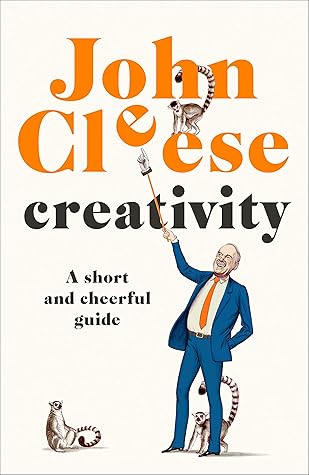More on this book
Community
Kindle Notes & Highlights
first time I discovered I was a bit creative, it came as a surprise.
if I put the work in before going to bed, I often had a little creative idea overnight,
“It can only be that while I’m asleep, my mind goes on working at the problem so that it can give me the answer in the morning.”
This intelligent unconscious of ours, then, is astoundingly powerful.
Without it, we couldn’t function at all. There’d be much too much to think about.
the language of the unconscious is not verbal. It’s like the language of dreams. It shows you images, it gives you feelings, it nudges you around without you immediately knowing what it’s getting at.
We may be pondering a problem, rather than earnestly trying to solve it.”
the more patient, less deliberate modes of mind are particularly suited to making sense of situations that are intricate, shadowy or ill defined…when
Creative adults, however, have not forgotten how to play.
creative people are much better at tolerating the vague sense of worry that we all get when we leave something unresolved.
The greatest killer of creativity is interruption. It pulls your mind away from what you want to be thinking about. Research has shown that, after an interruption, it can take eight minutes for you to return to your previous state of consciousness, and up to twenty minutes to get back into a state of deep focus.
When you’re being creative there is no such thing as a mistake.
As Hindus say, the mind is like a chattering, drunken monkey.
When we’re trying to be creative, there’s a real lack of clarity during most of the process.
New ideas are rather like small creatures. They’re easily strangled.
“Tortoise Mind.” “Hare Brain.” They need each other. But keep them separate!
you are most likely to be creative in an area that you already know and care about.
The general principle is this: the bigger the leap, the longer the creative period is likely to be.
Picasso said that he drew better when he was ten than he ever did again.
The Buddhists have a phrase for this—“Beginner’s Mind”—expressing how experience can be more vivid when it’s not dulled by familiarity.
the psychological equivalent of the Law of Diminishing Returns.
Playing…keeps you “fresh.”
Gregory Bateson once said, “You can’t have a new idea ’til you’ve got rid of an old one.”
Getting discouraged is a total waste of your time.
if you have zero expectations at the start, you can hardly fail.
The key thing is to start, even if it feels as though you’re forcing yourself through an emotional roadblock.
The trouble is that most people want to be right. The very best people, however, want to know if they’re right.


